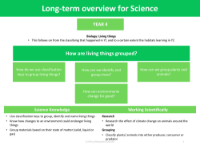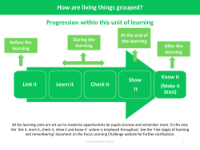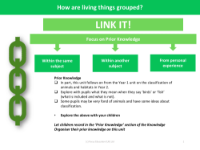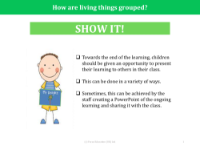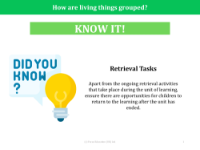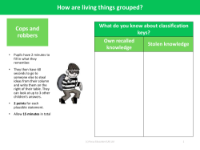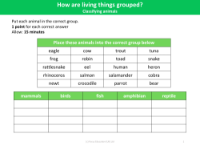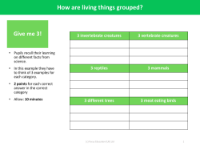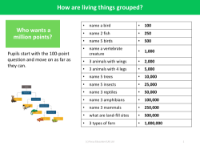Knowledge organiser - Grouping Living Things - Year 4
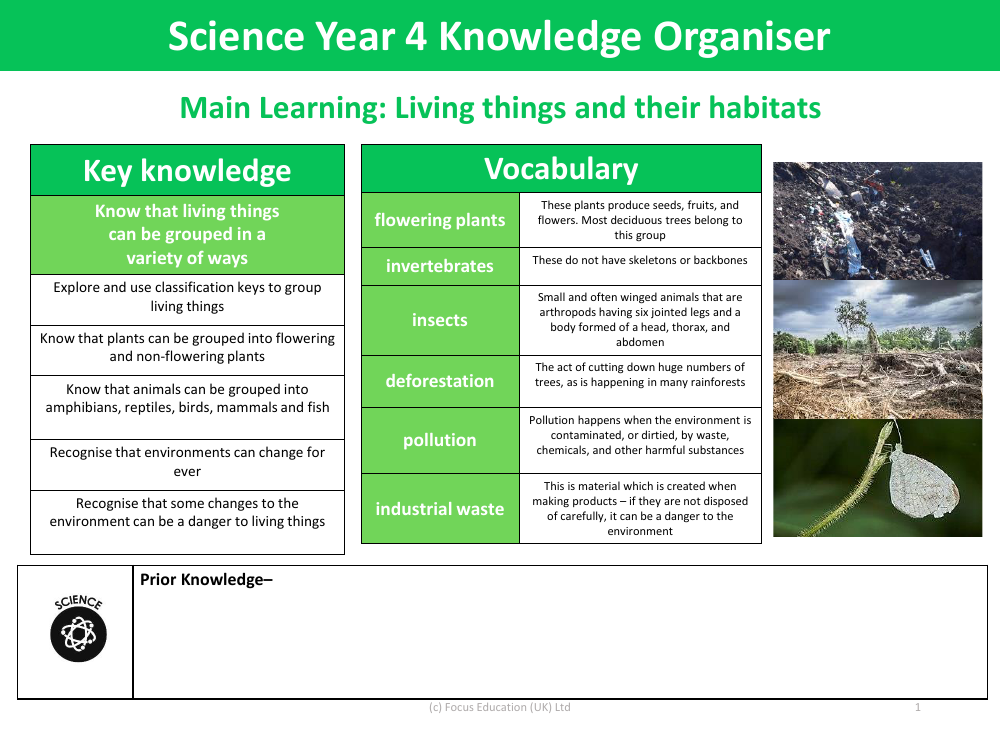
Science Resource Description
The Year 4 knowledge organiser for the topic 'Grouping Living Things' introduces essential vocabulary and key knowledge pertinent to understanding how living organisms are classified. Students learn that flowering plants are a category of plants that are capable of producing seeds, fruits, and flowers, with many deciduous trees falling into this group. Invertebrates are defined as creatures without skeletons or backbones, distinguishing them from vertebrates. The term 'insects' refers to small, often winged arthropods with six jointed legs and bodies comprising a head, thorax, and abdomen.
The organiser also covers environmental concepts such as deforestation, which is the widespread cutting down of trees, a phenomenon notably occurring in many rainforests. Pollution is identified as the contamination of the environment by waste, chemicals, and other harmful substances. Industrial waste is highlighted as a by-product of manufacturing, which can pose environmental dangers if not properly managed. The key knowledge section emphasizes the ability to group living things in various ways, use classification keys, and recognise the division between flowering and non-flowering plants, as well as the classification of animals into groups like amphibians, reptiles, birds, mammals, and fish. It also touches upon the understanding that environments can undergo permanent changes and that some of these changes can threaten the well-being of living organisms.

